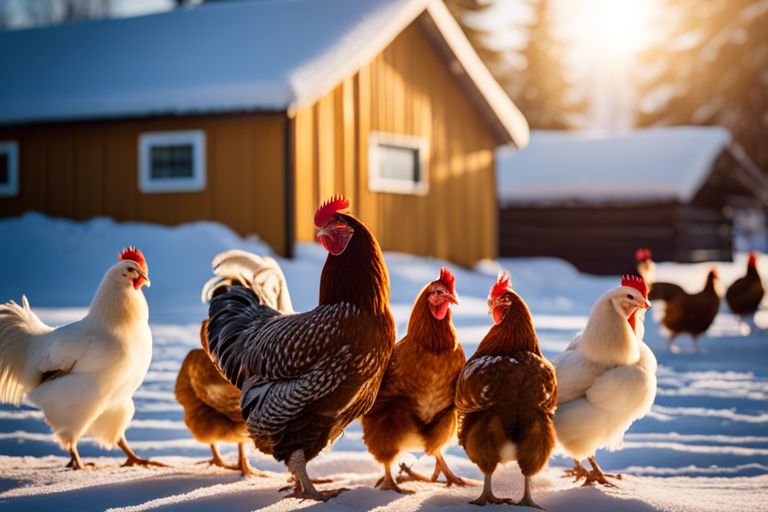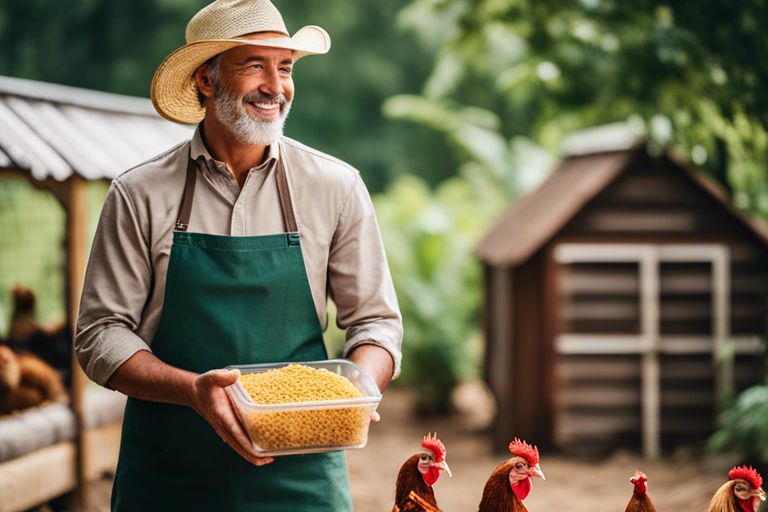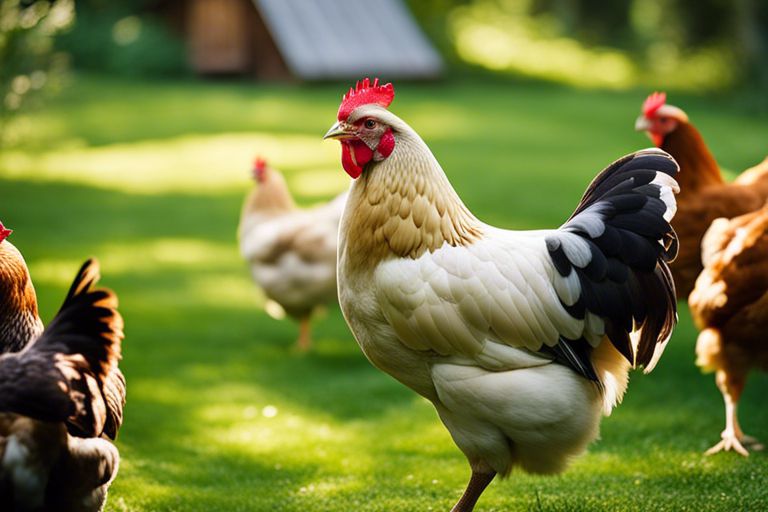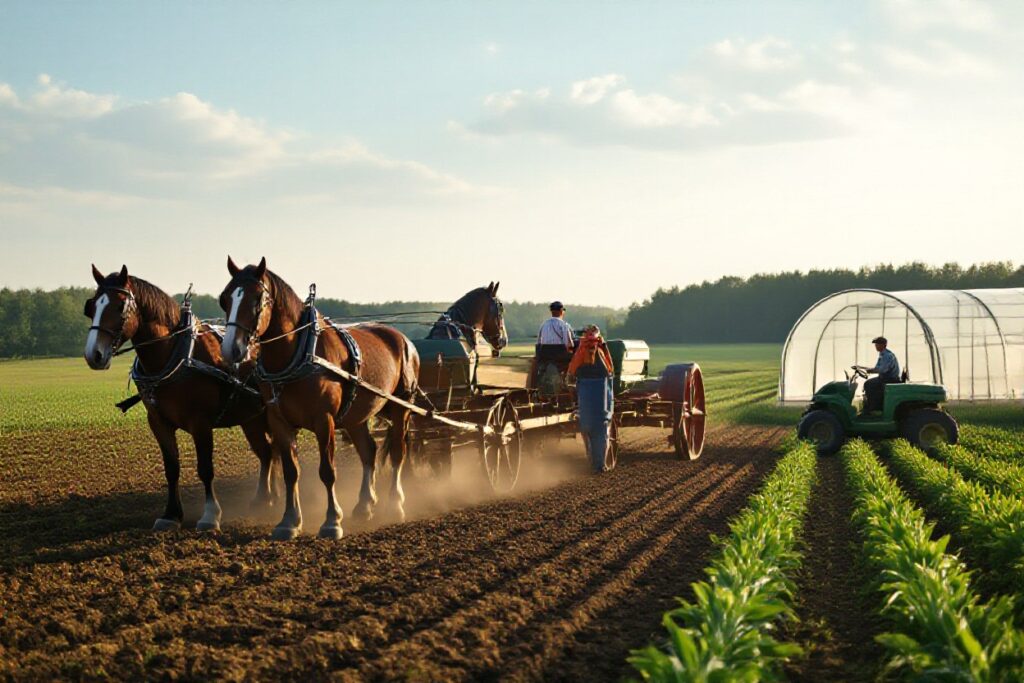Just like SUVs dominate the American automotive market, chickens are a common sight in many households across the country. However, not all chicken breeds are created equal when it comes to adapting to different climates. Whether you’re raising chickens in the heat of the South or the frigid winters of the North, it’s important to understand how to care for different chicken breeds in all climates. In this informative guide, we’ll provide you with expert tips on how to keep your feathered friends happy and healthy, no matter where you live.
Understanding Chicken Breeds
Characteristics of Common Breeds
Before plunging into the intricacies of caring for different chicken breeds in various climates, it’s necessary to understand the characteristics of common breeds. Different breeds have distinct temperaments, egg-laying abilities, and feather types, all of which can impact their ability to thrive in specific environments.
Selecting Breeds for Your Climate
When choosing breeds for your climate, it’s crucial to consider factors such as cold hardiness, heat tolerance, and humidity resistance. Some breeds, like the Rhode Island Red, are known for their ability to withstand colder temperatures, while others, such as the Leghorn, excel in hotter climates. By choosing breeds suited to your local climate, you can ensure healthier, happier chickens.
Understanding the specific needs and requirements of different chicken breeds based on your climate is key to successfully caring for them. By researching and selecting breeds that are well-suited to your region’s weather patterns, you can create an optimal environment for your chickens to thrive and produce eggs efficiently.
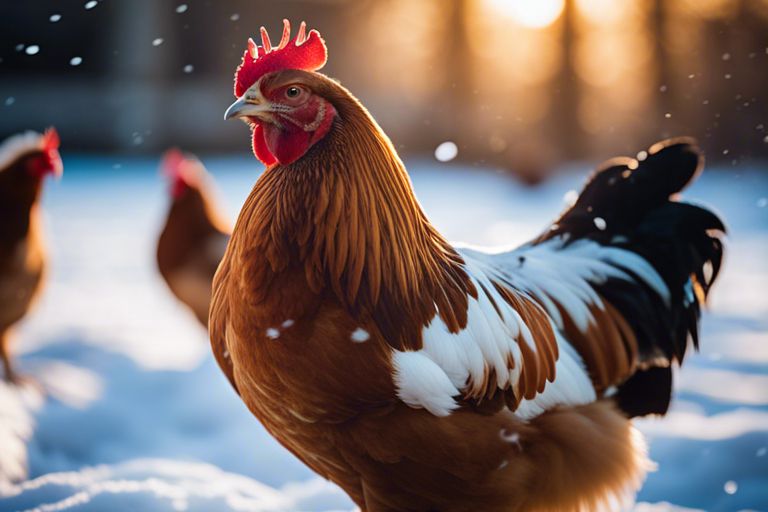
Shelter and Environment Considerations
Designing Coops for Weather Extremes
To ensure the well-being of your chickens in different climates, it is important to design coops that can withstand weather extremes. Make sure the coop is well-insulated to provide warmth in colder climates and proper ventilation to prevent overheating in hot climates. Consider using materials that are durable and weather-resistant to protect your chickens from harsh elements.
Managing Outdoor Spaces
With proper planning and care, outdoor spaces can enhance the health and happiness of your chickens. Ensure the outdoor area is secure from predators and provides adequate space for your flock to roam and forage. Consider providing shaded areas, dust baths, and shelter from the elements to create a comfortable environment for your chickens to thrive.
Shelter is crucial in protecting your chickens from extreme weather conditions. Provide shelters such as awnings or trees to offer protection from sun exposure and rain. Additionally, consider using windbreakers to shield your flock from strong winds. Regularly inspect and maintain shelters to ensure they remain safe and effective in all climates.
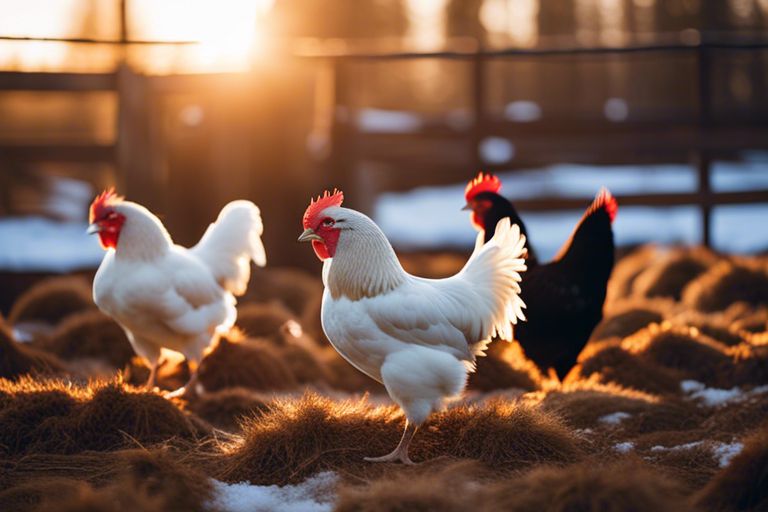
Nutrition and Health Maintenance
Feeding Chickens Throughout the Seasons
Your chickens’ nutritional needs can vary depending on the season. During the colder months, chickens require more protein to help them stay warm and maintain energy levels. Consider adding supplements or increasing your chickens’ protein intake through mealworms or other protein-rich treats. In the warmer months, ensure they have access to fresh water at all times to prevent dehydration.
Preventing and Addressing Health Issues
Issues like respiratory infections, parasites, and egg binding can arise in chickens if not properly cared for. To prevent such health issues, ensure your coop is clean and well-ventilated, practice good hygiene, and monitor your chickens regularly for any signs of illness. If you notice any health concerns, consult with a veterinarian who specializes in poultry health to address the issue promptly.
A proactive approach to health maintenance is crucial for keeping your chickens healthy and happy. Regularly check for signs of illness, such as changes in behavior, decreased egg production, or abnormalities in egg quality. By staying vigilant and addressing any health issues promptly, you can help ensure a long and healthy life for your feathered friends.
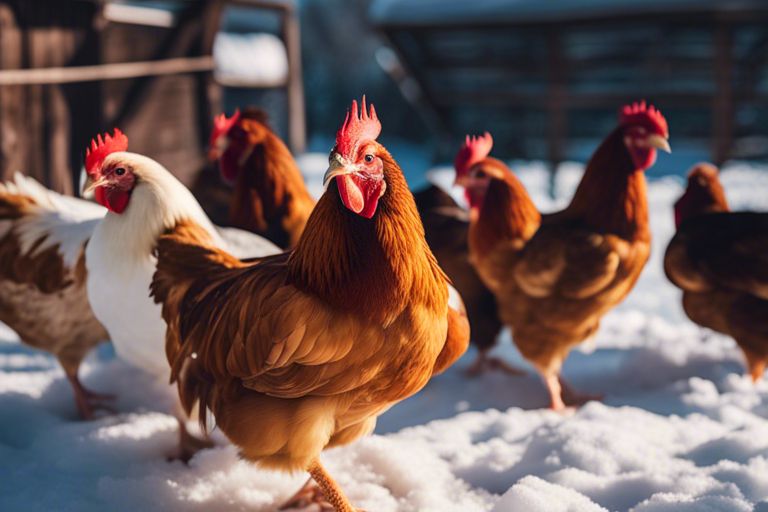
Handling Extreme Weather Conditions
Protecting Chickens from Heat and Cold
Heat can be just as dangerous to chickens as cold weather. To protect your flock from extreme heat, provide plenty of shade in their coop and run, ensure they have access to cool, fresh water at all times, and avoid handling them during the hottest parts of the day. In the case of cold weather, make sure the coop is well-insulated and draft-free, provide extra bedding for warmth, and consider using a heat lamp or additional heating source if temperatures drop below freezing.
Emergency Preparedness for Severe Weather Events
Handling severe weather events such as hurricanes, tornadoes, or blizzards is crucial for the safety of your chickens. Have a well-thought-out emergency plan in place that includes evacuation routes, a designated safe space, and a stockpile of food and water. Keep a first aid kit on hand and be prepared to move your flock to a secure location if necessary. Regularly check weather forecasts and stay informed about potential threats in your area.
Understanding the unique needs of your chicken breeds and how they react to extreme weather conditions is key to keeping your flock safe and healthy. By taking proactive steps to protect your chickens from heat and cold, as well as being prepared for emergencies, you can ensure that your feathered friends are well-cared for in all climates.
Summing up
So, when caring for different chicken breeds in various climates, it is imperative to consider their specific needs and characteristics. By providing adequate shelter, nutritional requirements, and environmental conditions suitable for their breed, you can ensure the health and well-being of your flock. Understanding the unique challenges each breed may face in different climates will help you tailor your care practices to meet their individual needs. With proper attention and care, your chickens can thrive in any climate.
FAQ
Q: What are some general tips for caring for different chicken breeds in all climates?
A: It is important to provide adequate shelter, proper nutrition, and access to clean water for chickens in all climates.
Q: How can I ensure that my chickens stay healthy in extreme hot weather?
A: To keep chickens healthy in extreme heat, provide shade, proper ventilation, and cool water at all times.
Q: What should I do to protect my chickens from harsh winter weather?
A: In cold climates, provide insulation in the coop, use heat lamps when necessary, and ensure access to fresh water that doesn’t freeze.
Q: Are there specific considerations for caring for different chicken breeds in humid climates?
A: In humid climates, it is crucial to prevent moisture build-up in the coop, provide good air circulation, and regularly check for signs of heat stress.
Q: How can I help my chickens cope with sudden changes in weather conditions?
A: Gradually acclimate chickens to changing weather conditions, provide extra bedding or fans as needed, and monitor their health closely.
Q: What are some common health issues that can arise in chickens living in extreme climates?
A: Heat stress, frostbite, respiratory infections, and mite infestations are common health issues that chickens may face in extreme climates.
Q: How important is it to research and choose chicken breeds that are well-suited to the climate in which they will be kept?
A: Choosing chicken breeds that are well-adapted to the specific climate in which they will be raised can greatly contribute to their overall health and well-being.
